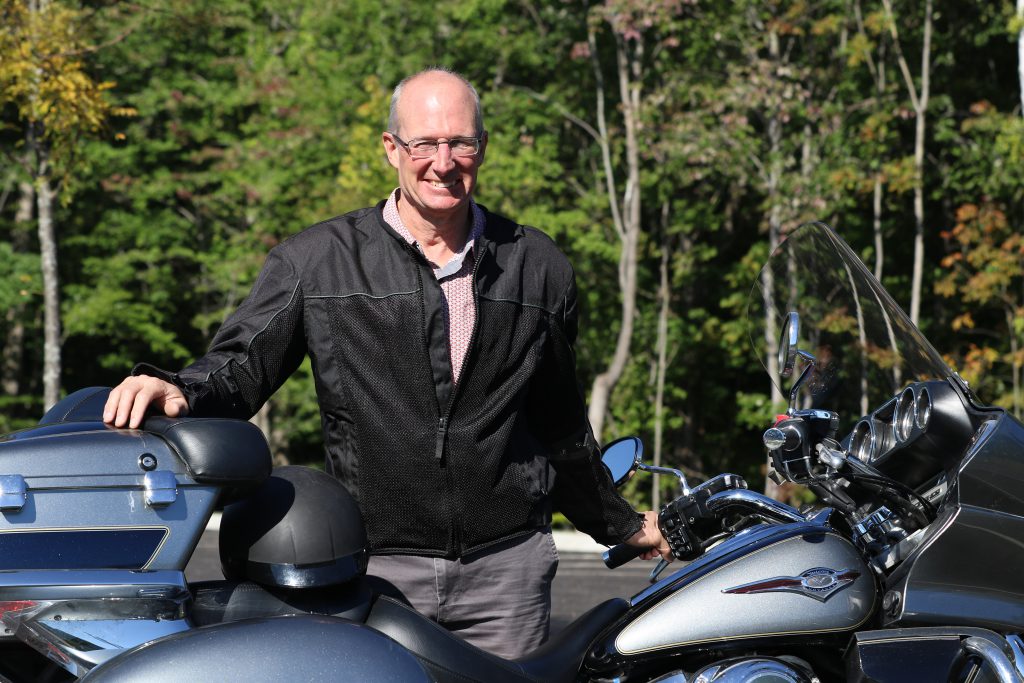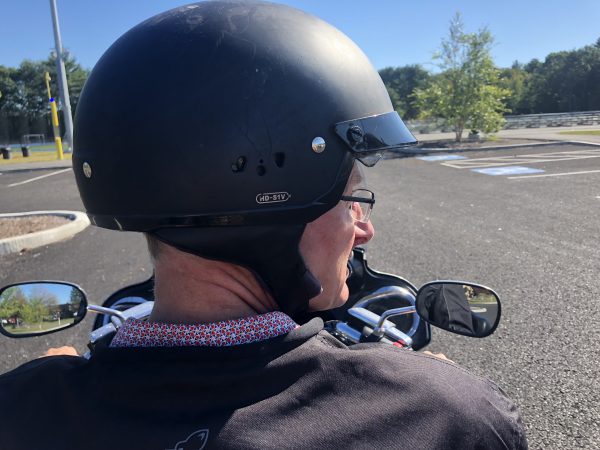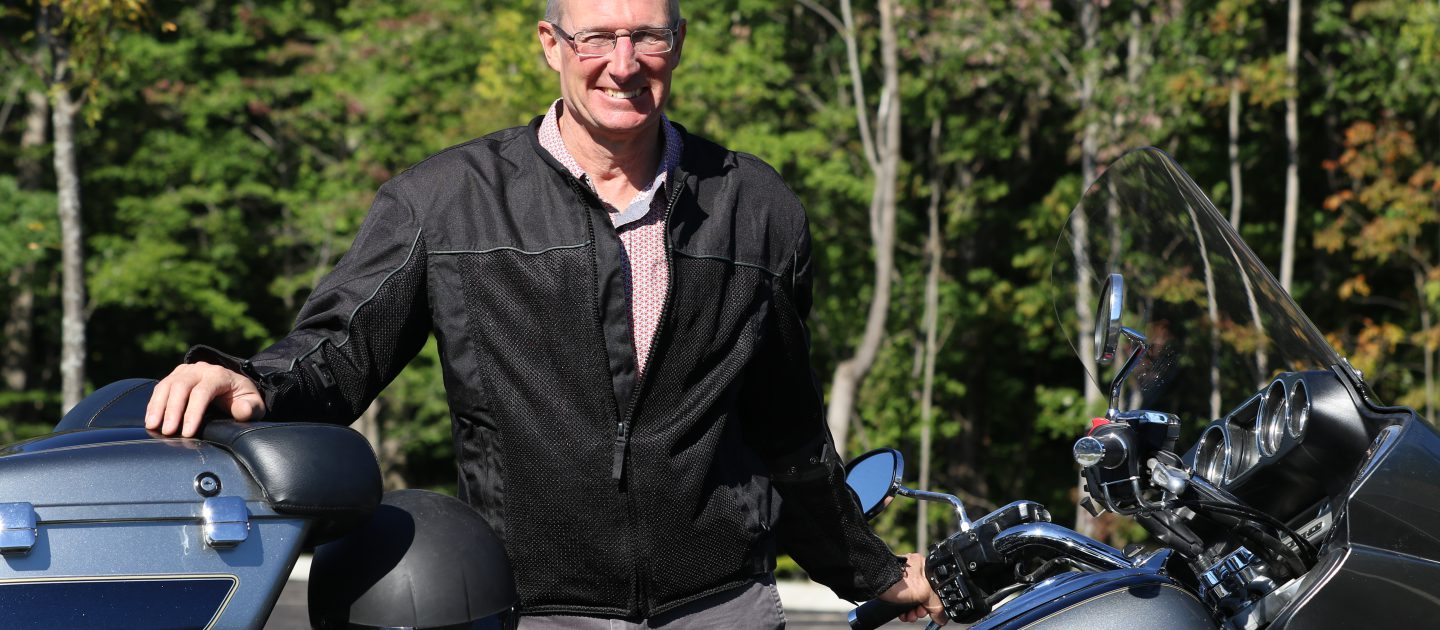Steve McFarland of Windham, Maine started riding motorcycles when he was seventeen years old. Some of the life lessons that came from those experiences inform his work at Saint Joseph’s. He said, “I love being outside and driving on curvy, open roads. Riding teaches me how to go with the flow. Riding the back roads of Maine, you see beautiful places—lakes and ponds—that you never knew existed. Ironically, motorcycles taught me at an early age that I couldn’t just go fast. I learned that the best way to enjoy it was to slow down and appreciate the beauty–stop and smell the roses kind of thing. When you slow down and find a quiet place, you listen. It allows you to think about what you want to do with your life.”

This is good advice, coming from the College’s director of Career Development.
“I started my career in chemical engineering in the paper making industry. It was good work, and well-paid work, but I came home one day and asked myself if I felt I was making the positive change in the world that I wanted to make. The answer was no.
“I switched to adult education, to working with individuals who had hopes and dreams of achieving their goals and finding better opportunities for themselves and their families. I needed to be a good listener for them and I found much satisfaction in the joy of their successes.
“This position at Saint Joseph’s is such a good fit with what I have done my whole professional life. I have devoted myself to helping people improve themselves for better opportunities.
“When I stepped into this position, I heard that one of the challenges was to get students to attend Career Development programming. I’m focusing on how to increase student participation by creating incentives and by collaborating with faculty. I collaborate with faculty because they play a key role in reassuring students that this is an important part of their learning process. Many faculty, especially those who teach the First Year Experience classes, are supportive by hosting presentations specific to career development in their classes.

“Rather than organize a lot of workshops, I’m trying new types of programming, such as the ‘Talk with an Employer Tuesdays’ program. Every Tuesday, in front of Pearson’s Cafe at lunchtime, an employer will be present to talk with students, faculty, and staff about their internship and employment opportunities. We started the season with an amazing employer – Maine International Trade Center (MITC). MITC is connected to hundreds of organizations in Maine that conduct business all over the world. Consider this: last year, 2,262 Maine companies exported $2.7 billion in goods and services to 176 countries. Wouldn’t you like to work as an intern for MITC? What an opportunity that would be!
“I’m also encouraging students to attend off-campus events, such as employer-led tours of their companies or attending networking events. That helps address the mystery of ‘what is the work really like in these professional workplaces’? Building a network of professionals is one of the best things a college student can do to get connected to a career they’ll really love. It’s the old joke, ‘What are the three best things you can do to find a job? Networking, networking, networking.’
“Another important part of my job is administering the Connections Program. There has been some confusion around this program, so we updated the policies and guidelines this summer to hopefully remove any misconceptions that exist.
“Connections is an opportunity, not a guarantee. When students come in and ask, ‘How do I get my Connections money?’, I tell them that they’re asking the wrong question. I tell them that I need to hear about the great idea for how they’ll use Connections money. We help them to articulate their idea to be persuasive about the outcomes and the benefits.
“Connections is an amazing opportunity for students to create an experience for themselves, often life changing, that helps them clarify who they really are and what they really want to do in life. I love hearing what they’re thinking about, and helping them plan the best possible experience.”
“Thirty-five years removed from my short-lived chemical engineer career, do I feel I’m making the positive change in the world that I wanted to make? One hundred percent ‘yes!’”
